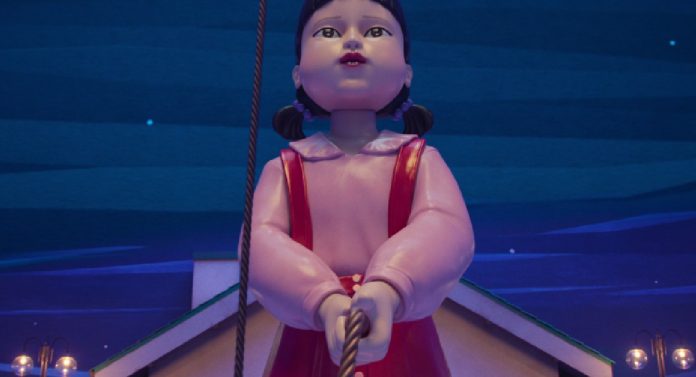Seoul’s city center turned into a scene straight out of Squid Game in late June, as Netflix partnered with the Seoul Metropolitan Government to host a large-scale parade celebrating the hit show’s final season. Complete with costumed guards, jumpsuit-clad “players,” and a towering replica of the eerie Young-hee doll, the event drew thousands of excited fans… and a wave of backlash over its public nature.
What was intended as a highlight of K-Content Seoul Tourism Week quickly became the subject of controversy. As originally reported by The Korea Times, many parents and educators were alarmed that such a high-profile celebration of a hyper-violent, adult-rated series was held in an open and obvious location, without age restrictions.
Baek, a mother of two, was out walking with her family when they stumbled across the event. “The show is rated for adults. Should something like this really be held in an open square, not a restricted venue? Adults shouldn’t expose children and teens to content meant for mature audiences. Is money and popularity all that matters? This kind of marketing makes me uncomfortable.”
Held along Sejong-daero and concluding at Seoul Plaza, the parade was reportedly attended by around 5,000 people, according to police estimates. It also streamed live on Netflix’s YouTube channel, and concluded with a star-studded appearance by director Hwang Dong-hyuk and actors Lee Jung-jae and Lee Byung-hun.
Though no violent imagery was depicted outright, the symbolism was impossible to miss. From the guards’ ominous pink uniforms to the looming robotic doll that oversaw a crowd of selfie-takers, critics argue the parade glamorized the show’s brutality, without proper context or audience control.
Jung, a local kindergarten teacher, noted that her students are already mimicking scenes from the series at school, pretending to shoot each other as they act out “Red Light, Green Light.”
Psychologists warn that the impact of such exposure runs deeper than imitation. Seoul National University professor Kwak Keum-joo pointed to research showing that early exposure to violent media can increase desensitization and aggression in children. Psychiatrist Bae Seung-min echoed this, warning that media like Squid Game can distort young minds’ understanding of the value of life.
For now, Netflix and Seoul officials remain silent on whether age guidelines should have played a larger role in organizing the event. But the response from educators and parents signals a broader conversation brewing—one that weighs the global influence of Korean pop culture against the need for mindful, age-appropriate content in public spaces.
Source: Korea Times

